Founding CCR bassist shares advice for learning bass, plus feelings toward his former bandmates
Exclusive interview with FBPO’s Jon Liebman
August 23, 2021
As the founding bassist of Creedence Clearwater Revival, Stu Cook has certainly earned a place in rock and roll history. A member of the band from 1959 to 1972, his bass lines can be heard on timeless rock classics like “Bad Moon Rising,” “Fortunate Son,” and other mega hits. In the 1990s, Cook and CCR drummer Doug “Cosmo” Clifford formed the band Creedence Clearwater Revisited to play live versions of CCR songs. Beyond that, the renowned bassist has also been a member of the country group Southern Pacific and worked as a producer with Roky Erickson and the Aliens. Cook was inducted into the Rock and Roll Hall of Fame in 1993.
FBPO: It’s hard to believe the last time we did an interview was 9 years ago!
SC: Yeah, that shocked me when you said 2012.
FBPO: What’s keeping you busy these days, musically speaking?
SC: Well, musically speaking, I still thump around on the bass. It’s not an instrument you can have a tremendous amount of excitement with by yourself. I guess throw in a drum machine and you can get inspired to go in different directions. So I’ve been playing a lot of guitar and singing, learning a bunch of my favorite songs. Beatles songs, Petty songs, Eagles songs, believe it or not, trying to find keys that I can sing them in, and some country tunes and stuff. Just been playing a lot of acoustic guitar and messing around a little bit with more home studio ideas and stuff. Been collaborating a little bit with both of my sons on possible musical ideas. Just trying to stay interested. Learning little bits here, little bits there. But I’m really amazed at the explosion of online bass instruction.
FBPO: Well, that’s what I do.
SC: You were the first guy! You were the first one.
FBPO: Well, one of the first.
SC: Yeah.
FBPO: Let’s talk about Creedence. Pretty much all the albums have hit the 50th anniversary mark. How does that make you feel? Can you believe that?
SC: Not really. The whole Creedence experience is … I know there’s people writing books already about it. I mean, real books. But it blows my mind. People say I should write a book, and I don’t even know where to start, because it just couldn’t happen in a normal world. The fact that we were together for so long, and finally had a breakthrough after many failures along the way — record releases that we had hopes for that just weren’t even in the ballpark that we wanted to play in. But finally, we got in. And then it just sort of became an organic rocket ship. It took off real fast, and we had pretty much nothing to do with it. It was all radio, really. Radio made Creedence. Radio exposed us to the masses. That’s what media does. When they do it over and over again, you got something going for you, good or bad. That’s how the mass media works.
FBPO: Why do you supposed they chose you?
SC: We just got lucky. We were in the right place at the right time. John (Fogerty)’s songwriting really blossomed on the second album. And there were some good original songs on the first album, I thought. But the hit machine started with “Proud Mary,” on the second album, and then he was able to keep it going. We worked our butts off. It was like a job. We went to work every day and rehearsed, and learned material, and fine tuned. Made recordings, took them home, came back, and we weren’t that good. It took a long time to get some of this stuff recordable, to be able to perform it. But we were bringing ourselves up. Every new recording was a challenge. We tried to make each one better. And the first two albums were already being played live when we recorded them. All the rest were truly studio albums, so we were missing the attitude, I thought, of how best to perform these songs. When you’re on stage, you’re always looking to get the best reaction. You’re entertaining. And there’s always a point in the night when it either goes good or bad. Or it just stays flat. A flat liner’s probably worse than a bad night for a player. Like, “Excuse me, we’re not bothering you, are we?” Kick some dirt on you, bury you.
FBPO: What’s happening with the band now? I’ve always had the impression you and Doug were pretty tight.
SC: Yeah.
FBPO: I asked you in the last interview about a possible reunion with Fogerty, and your exact words were, “Don’t count on it.” Has that changed?
SC: Not really. Through the legal system and just aging, I guess some memories lose their sharp edges. John has mellowed out a little bit. And we have a semi-functioning corporation that is in charge of the trademark. We’ve really yet to find a way to do some big marketing. And then of course the pandemic put everything on hold. At least, we got that much straightened out, who owns the trademark, who’s entitled to use it, how it’s going to be used, which is what I’ve been trying for ever since the band broke up. John insisted that it was him, and we said no, there was four of us. So anyway, we got that settled, so we are on another level.
FBPO: I read an interview with you from as recently as last year, where you said, “People just don’t believe that we actually buried the hatchet, but it’s true, it’s true.”
SC: Well, I’m trying to be complimentary. When someone asks me a question, I’m not going to downplay John’s contributions. I mean, my God, the guy wrote the songs, he sang the songs, he led the band. Unfortunately, he managed the band, as well. But he did a lot of great stuff when we were all together. We all did great stuff together. And Doug and I and Tom always believed that the sum was greater than the parts. He had to make those records with the band he had. We signed the contract that was on the table. Not the one we wanted, but the one that was offered. Life has changes. And what bothered me the most about looking at the past, and why I said, “Don’t count on it,” and still do, is that John’s just never appreciated that we were there, that it likely wouldn’t have happened had we not been 100% all committed to making it happen. So I’m trying to be as gracious as I can. Burying the hatchet means burying the hatchet. It doesn’t raise me up to disparage him.
FBPO: Do you think it would be fun to play together again?
SC: Playing together is a whole other thing. Doug is physically compromised to some extent, but if it meant enough to him to play with John, I think he’d get it together to play. That’s one of the reasons we put the Revisited project to bed. Besides, 25 years of touring, and bad food, and lousy hours, all for 90 minutes of enjoyment, age takes its toll. You end up with a condition you didn’t have 10 years ago, and then you got to deal with that, and then that becomes more important. Then your grandkids become important. So, actually playing, it would have to come from John, and I just don’t believe John’s in any kind of a space where he wants anything to do with us. He’s originally tried to separate himself from Creedence, then he realized that that was the biggest mistake that he could be making at the time, and that he should be using Creedence to launch a solo career. He had some success with Centerfield in ’85, but since then, his career has just been struggling like mad. He’s just not getting a lot of good guidance, but that’s really none of that’s my concern. I just want everyone to celebrate the success, honor the success, and have a pleasant life, whatever’s left of our life. We’re all 76. So [we’ve] got other things that should be more important than even playing together. I would like it, I guess, just out of curiosity, just to see if we were still any good.
FBPO: Let’s switch gears. Tell me about your basses and your equipment.
SC? I’m currently a Lull endorser. They’ve made me a couple basses. Mike (Lull) made me a signature model just before he passed, which is sort of, to me, one of the high points of my career, that I actually got some boutique builder to make a signature bass for me. Fender turned me down. That was the only one I was ever interested in anyhow because I played Fender for years. All the hits were recorded on a P-bass.
FBPO: What kind of strings do you play?
SC: I play MJC Ironworks. To me, I’ve played just about everybody’s strings, and I got them for free for so many years that I never realized that there were other products. But the only two guys that I knew were Rocco Prestia, he was an endorser, and then yours truly.
FBPO: What about amps?
SC: I’m a Tone Hammer guy. I’ve been an Aguilar guy forever and ever and ever.
FBPO: What did you play back in the day, with Creedence?
SC: Oh, I had a Fender. The Fender single Showman was my amp. I didn’t even know what the difference was. A dual showman was for two speakers, a single showman was for one speaker, apparently. But I always used it with one cabinet with two 15-inch speakers in it.
FBPO: What advice do you have for someone who wants to learn bass?
SC: There’s really no substitute for the basics. You need to learn the fretboard. First thing, you need learn where the notes are on the neck. I would forget tab. If you’re going to learn a language, you may as well learn the real language instead of the pigeon language. It doesn’t take any more time, really, to learn to read notation. To me, tab is baffling. And plus, all the expression is gone. You can’t put expression with the dots and the squigglies and all the stuff that’s part of the classical and traditional music pedagogy. The best combination is to get enough musical theory so that you can understand the relationships of the notes of the scale. I think it’s very helpful to have ear training. The people who get the most out of the time they invest in learning an instrument are ones that go the traditional route. You should listen to a lot of other people and not worry about style. Your style will come. Listen to all the great music, that great bass playing. And bass has really come to the forefront in the last 20, 25 years. It used to just be the thump in the background, right? The “1-5” guy. Then groups like AC/DC just made it the “1” guy. U2 is also another one-note [band]. But if it drives, if it’s the right part, then that is the right part. I don’t know what these other guys like to play, or what they can play. But I only know what I hear on the record. And it sounds like the right part for the song.
FBPO: Do you think learning to read music gets overlooked?
SC: My first instrument was trumpet. Of course, I had to read. My second instrument was piano, and of course I had to read. When I got to rock and roll, I stopped reading. It’s probably my biggest single regret. And when I did get back into reading, I got all of Carol Kaye’s books, and Creedence was just breaking. I was trying to improve quick, as fast as I could, so I got her books, and so I sightread. Now they have tape recorders where you don’t have to write anything down. But I would come up with something, and in order to not forget it, I would have to write it on the staff. Having come all the way through my career, I believe you’ll get the most out of it for the time invested by doing it the traditional way. Once you understand theory and your ear can recognize intervals and stuff, you can pick this stuff up off the radio, or off whatever source … streaming, whatever the source is now. You can pick it up. You can learn the song while you’re listening to it. You might not have the exact notes that Paul McCartney played, but you’ll know the changes. There’s layers of value to be appreciated by using the traditional classical method of learning an instrument. Any instrument. Why would you not learn the names of the notes, and where they were? What are you trying to do? When you’re just a kid, and you’re just thumping along with your buddies, it’s not so important. But the older guys have been through all that already, and now, for the time that they want to spend doing it, I think they want to see the most improvement, because that’s where you get the most enjoyment.
See Jon’s blog, with key takeaways from this interview here.
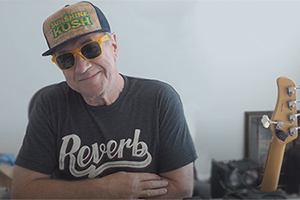
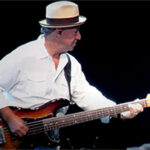
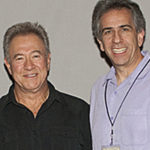
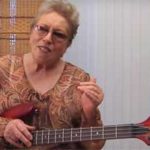

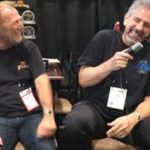
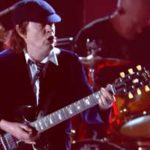

I can relate to bass playing by yourself not being very exciting. Due to work obligations I didn’t play with anyone for many years. After I retired I got involved in the start-up of a new Cowboy Church. A man I knew and a couple others started the band. We played country gospel, which I had never played before; country or gospel. But thanks to the internet I could play along with Merle Haggard, George Jones, Hank Williams, and any other country artist. It helped me tremendously. Not to mention learning the Nashville number system. I’ve been blessed to have played with some awesome musicians and I can mostly keep up with them. Not bad for a 71 y/o guy who didn’t play with anybody for 30 years.
Fogerty’s career struggling since 85? What rock have you been living under, Stu? He won a Grammy for Blue Moon Swamp, and has released several records that have enjoyed great success, with sold out shows all over the world for many many years. Unlike you, 25 years with a lame watered down version or Creedence featuring just the original drummer and bass player playing casinos, ballrooms, and county fairs, and fiddling around with your bass and guitar at home? You haven’t come up with a single new thing since long before Centerfield even came out. Yup, Fogerty sure hit the spot about you in his book.
Having said that, great bass execution on those original CCR records. I’ll give you that, and I’ll always enjoy them.
CCR = John Fogerty, and no one else. Period. Sad story
CCR blew up after John took over. The band broke up because the rest of them wanted it to be a band of equals. The E Street Band is still going strong after decades because they understand who’s The Boss. Bruce butters their bread to this day. Is Bruce an attention whore and control freak? Maybe, but they’re still getting paid.
If you didn’t have John you would have never made it. He wrote those songs, produced and managed. You guys just went and played and grumbled because you were jealous and greedy and John is still very successful and going strong at 77. Maybe you should try thanking him and get over your resentments personality. I don’t blame him for not wanting to play with you guys. You’re so ungrateful.
Hang in there Stu, John and these other commenters all sound like egotists. I was late to the party, having been born in 1965 but like many others, bought Centerfield in 1985 and was disappointed because what I really wanted was more CCR.
Thanks for the comment, Dale. FYI, we have another interview with Stu, this time a video, coming up Nov 14, 2022. It includes more stuff about Fogerty plus a behind-the-scenes look at the CCR concert at the Royal Albert Hall. Check it out!
John Fogerty is the single, sole genius of CCR and beyond. Very ungrateful and spiteful of the others for resenting John though he gave them everything they have. Sorry but drummers and bassists aren’t that hard to come by.
Thanks for weighing in, T. You might also want to watch our more recent interview with Stu, where he shares some more thoughts on the subject. Here’s the link: https://forbassplayersonly.com/stu-cook-2/
Get a life. You’re a misguided mean person
Had to lol at his saying the universally acclaimed John Fogerty has been struggling since 85. Just read Fogerty biography and he was right about Cook. What a clown.
Look at all you whiners, like John Fogerty is your best friend. You don’t know what went down and frankly how stupid John was to sign that original contract. This wasn’t teenagers in the 1950’s, Fogerty signed the agreement in 1968, plenty of music attorneys then. It was his fault, Period. All you groupies.
Listen to I put a spell on you and you will see how great all four were together! Listen to each of there musical genius. All four ccr forever!!!!!!